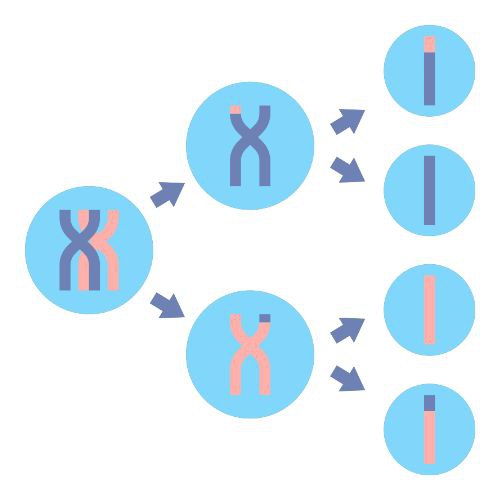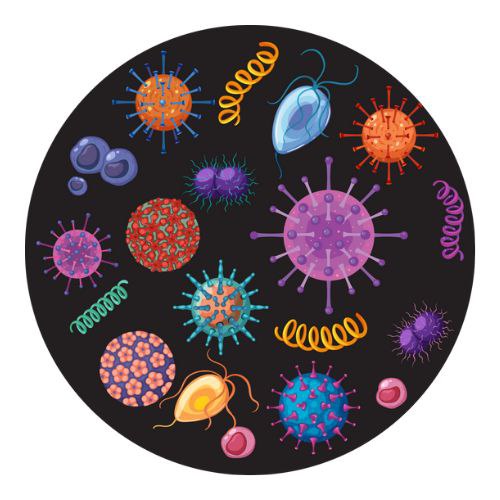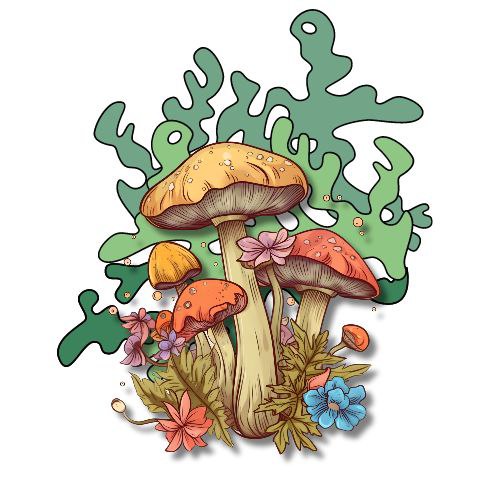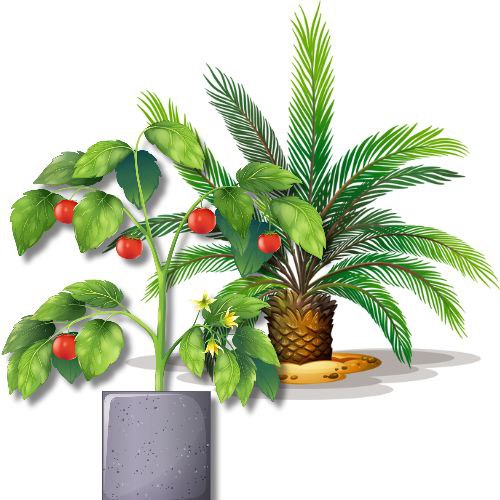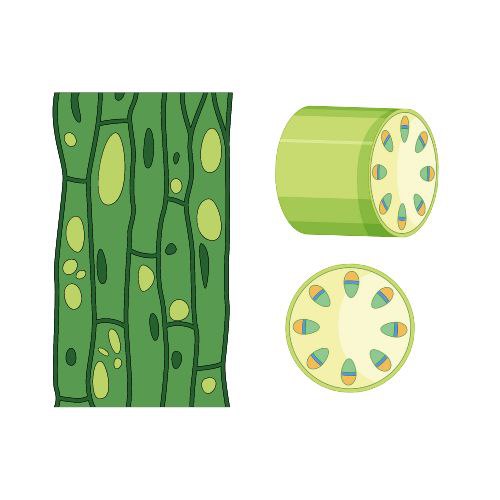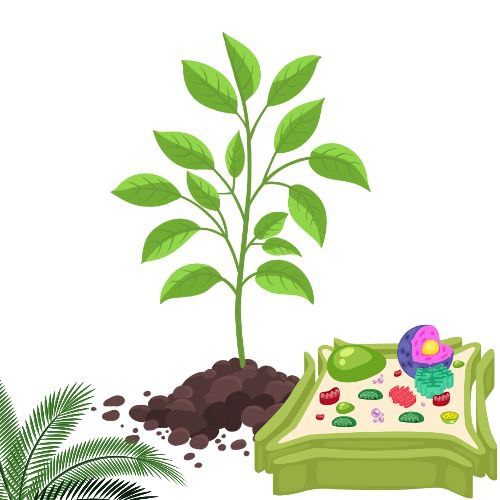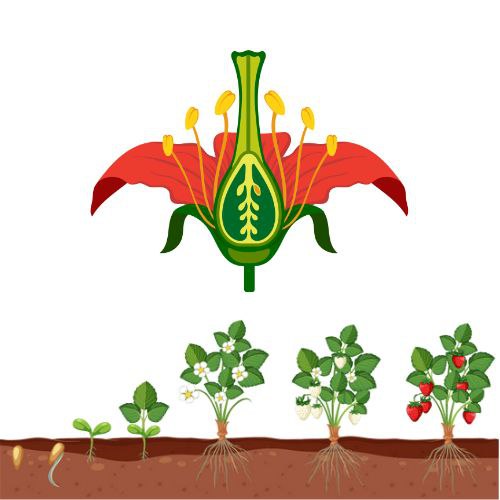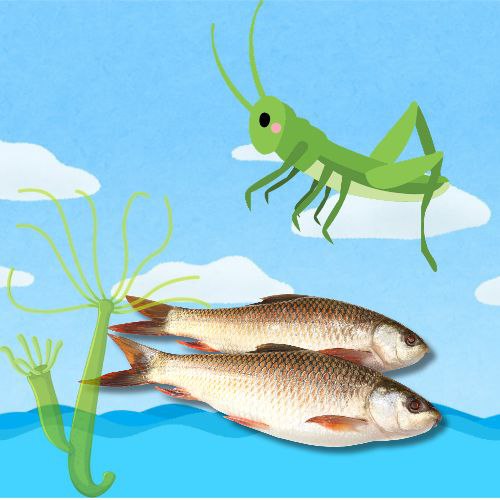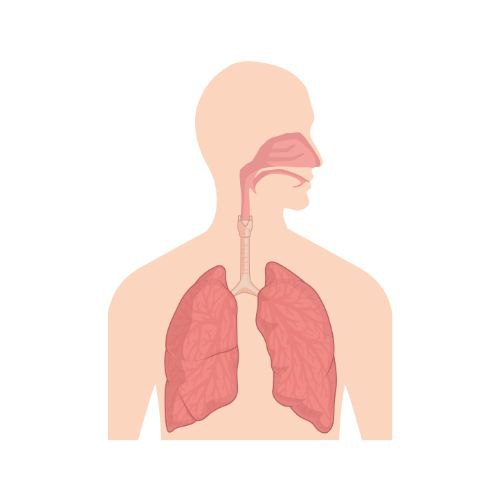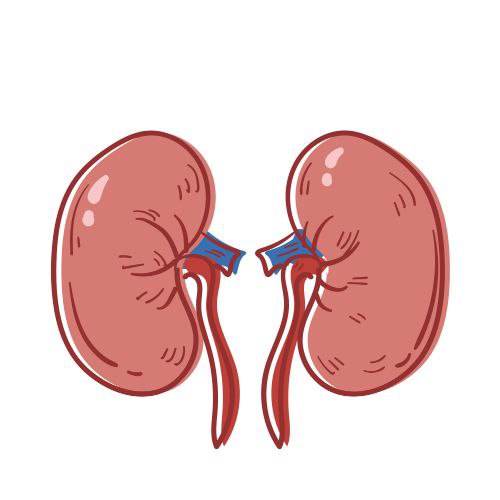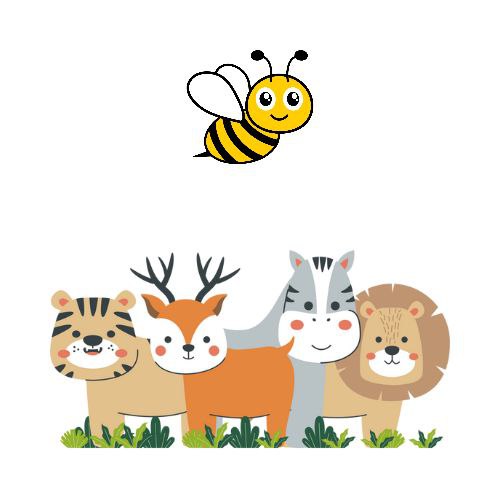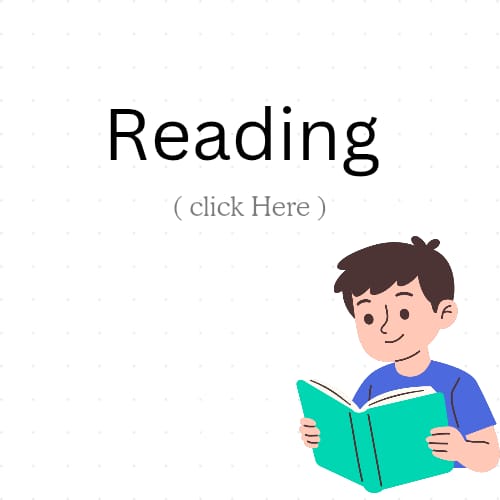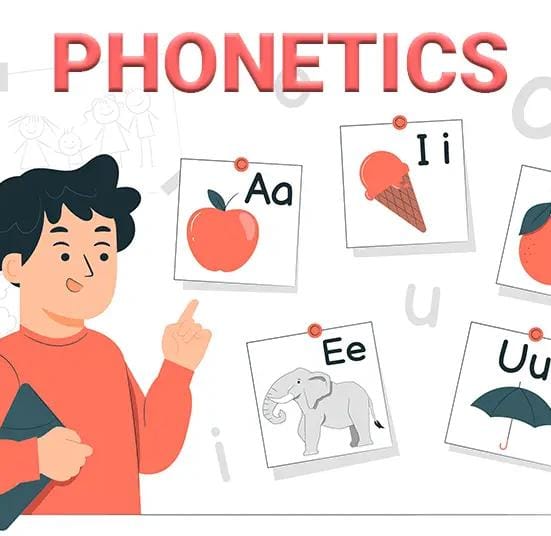Click here to get the note- 1. Unit One Sense of Self
Click here to bangla Vocabulary on Unit One – Sense of Self
Unit One: Sense of Self
Lesson 1: “Mr. Moti” by Rahad Abir
Economy and education are two major factors that segregate people in a society. ‘Mr. Moti’ is a story by Bangladeshi writer Rahad Abir. The lesson instructs readers to read two sections of the story and try to understand the identity of people belonging to different social classes, and also to think about how the human world and animals/birds are inter-related.
The story begins with Ameen, seventeen, announcing his intention to go to war after supper one Monday. His mother, Sonabhan, is surprised and asks if he will leave her alone. Ameen assures her he will be back soon after training. That night, Sonabhan cannot sleep.
The next morning, Sonabhan opens the duck coop, and the flock streams out, stretching and quacking for their morning meal. She takes longer than usual to mix water with rice husks in an earthen bowl for them. The ducks gobble it up and head for the pond. Ameen has already let out the chickens and is sitting on the veranda with his 12-week-old cockerel, Moti, eating rice in silence. Noticing his mother’s puffy eyes, he avoids the subject of last night.
It’s market day, and Sonabhan has arranged items for Ameen to sell at the bazaar, including two dozen eggs, a sheaf of areca nuts, and a bottle gourd. The bazaar is about a mile away. Ameen puts on his short-sleeved floral shirt over his lungi, whistles while combing his hair in a cloudy mirror, and then places the rattan basket on his head before calling out to his mother that he’s off. Sonabhan watches him go, realizing for the first time that Ameen has grown up, reaching the height of his dead father and having his long neck and straight shoulders.
Sonabhan realizes that Ameen is fascinated with fighting, not just the war, similar to his dead father’s passion for bullfighting, cockfighting, and boat racing. He shares the same stubbornness; once he decides on something, nothing can stop him. She recalls how, even up to his fifteenth birthday, neighbors would frequently appear with complaints about him, sometimes from other villages, asking if Ameen lived there. Sonabhan would sigh and ask what he did, often hearing complaints like “Your son stole my date juice! Emptied the juice pots hanging on the date trees!”. She would sigh again, ask for pardon, and, hating to say she raised her son alone, offer half a dozen eggs to the visitor for their children. At night, Sonabhan would tiptoe into Ameen’s room with a hurricane lamp, look at her sleeping son who snores like his father, and touch his cheek and broad forehead, suppressing the desire to lie beside him like the old days when she cuddled her baby.
Later in the story, old Chowkidar’s young wife warns Sonabhan to watch her rooster, Moti, not wanting him in her house again. Sonabhan responds by threatening consequences if anyone touches “my boy”. She grounds Moti for a day, which makes him sad, and his captivity crucifies her, leading her to set him loose the next morning. Some boys ask to borrow Moti for cockfighting at a fair, offering to pay, but Sonabhan refuses, stating, “He is my son”.
Monday dawns silently without Moti’s crowing. His cold body is found resting on its right side, lying against the basket, eyes closed, with his kingly head down. Sonabhan sits motionless with Moti’s basket in her lap. She buries Moti next to her husband’s grave, then sighs and walks across the empty yard, onto an empty veranda, and crawls into an empty home, sitting on the edge of an empty bed. Another morning breaks, noon and afternoon pass, and the birds in the coops quack and crow, but no one lets them out. For the first time, Sonabhan’s doors do not open.
The lesson then poses several questions for discussion:
- Why is the rooster called Mr. Moti?
- Is the writer trying to compare the son with the rooster? What are the reasons for doing so?
- Why is the story a Bangladeshi story? Which war is referred to in the story?
- Do you know what cockfighting is?
- What do you think about the mother-son relationship?
It also asks students to make a list of words from the story with cultural connotations and use them in a conversation between two friends. Additionally, there’s a discussion prompt about the cultural belief that sons follow their fathers’ ways and daughters resemble their mothers, asking students to discuss if this belief is present in the story and provide examples from their own lives. Finally, students are asked to arrange a debate on the motion: “Man is known by his work, not by his looks”.
Lesson 2: “Girl” by Jamaica Kincaid
The lesson begins by instructing the reader to read the following story and answer questions.
The story, presented as a series of instructions or advice, is as follows:
“Wash the white clothes on Monday and put them on the stone heap; wash the color clothes on Tuesday and put them on the clothesline to dry; don’t walk bare-head in the hot sun; cook pumpkin fritters in very hot sweet oil; soak your little cloths right after you take them off; when buying cotton to make yourself a nice blouse, be sure that it doesn’t have gum in it, because that way it won’t hold up well after a wash; soak salt fish overnight before you cook it; is it true that you sing benna in Sunday school?; always eat your food in such a way that it won’t turn someone else’s stomach; on Sundays try to walk like a lady and not like the slut you are so bent on becoming; don’t sing benna in Sunday school; you mustn’t speak to wharf-rat boys, not even to give directions; don’t eat fruits on the street-flies will follow you; but I don’t sing benna on Sundays at all and never in Sunday school; this is how to sew on a button; this is how to make a buttonhole for the button you have just sewed on; this is how to hem a dress when you see the hem coming down and so to prevent yourself from looking like the slut I know you are so bent on becoming; this is how you iron your father’s khaki shirt so that it doesn’t have a crease; this is how you iron your father’s khaki pants so that they don’t have a crease; this is how you grow okra far from the house, because okra tree harbors red ants; when you are growing dasheen, make sure it gets plenty of water or else it makes your throat itch when you are eating it; this is how you sweep a corner: this is how you sweep a whole house; this is how you sweep a yard; this is how you smile to someone you don’t like too much; this is how you smile to someone you don’t like at all; this is how you smile to someone you like completely; this is how you set a table for tea; this is how you set a table for dinner; this is how you set a table for dinner with an important guest; this is how you set a table for lunch; this is how you set a table for breakfast; this is how to behave in the presence of men who don’t know you very well, and this way they won’t recognize immediately the slut I have warned you against becoming; be sure to wash every day, even if it is with your own spit; don’t squat down to play marbles you are not a boy, you know; don’t pick people’s flowers-you might catch something; don’t throw stones at blackbirds, because it might not be a blackbird at all; this is how to make a bread pudding; this is how to make doukona; this is how to make pepper pot; this is how to make a good medicine for a cold: this is how to catch a fish; this is how to throw back a fish you don’t like, and that way something bad won’t fall on you; this is how to bully a man; this is how a man bullies you; this is how to love a man, and if this doesn’t work there are other ways, and if they don’t work don’t feel too bad about giving up; this is how to spit up in the air if you feel like it, and this is how to move quick so that it doesn’t fall on you; this is how to make ends meet; always squeeze bread to make sure it’s fresh; but what if the baker won’t let me feel the bread?; you mean to say that after all you are really going to be the kind of woman who the baker won’t let near the bread?”
- Answer the following questions:
- Is it a story about a mother and daughter? Do you find the mother and daughter familiar to you?
- What is the cultural identity of the speaker and listener?
- What is benna?
- What is the importance of gender in the story? If the girl in “Girl” were a boy, would the mother be telling him the same things?
- If the father were talking instead of the mother, would he say the same?
- Group work: Make a list of foreign or unfamiliar objects mentioned in the story and make short notes on them in small groups. Present the notes in the class.
- “One is not born a woman, one becomes a woman.” This is a comment by a famous gender theorist. Does the story give you a sense of that kind? Write ten sentences on your thoughts.
- Biological attributes make a person act as a man or a woman in society. This creates gender identity and gender discrimination. In the following table, complete the list of activities that you find marked in our society as man’s job and woman’s job:
| Man’s job | Woman’s job |
| Driving a car | Cooking |
| Athletics | Nursing |
| Scuba diving |
Lesson 3: O Me! O Life!
A O Me! O Life! Walt Whitman
Oh me! Oh life! of the questions of these recurring,
Of the endless trains of the faithless, of cities fill’d with the foolish,
Of myself forever reproaching myself. (for who more foolish than I, and who more faithless?)
Of eyes that vainly crave the light, of the objects mean, of the struggle ever renew’d,
Of the poor results of all, of the plodding and sordid crowds I see around me,
Of the empty and useless years of the rest, with the rest me intertwined,
The question, O me! so sad, recurring-What good amid these, O me, O life?
Answer. That you are here—that life exists and identity,
That the powerful play goes on, and you may contribute a verse.
B Listen to the poem using the following YouTube link:
https://www.youtube.com/watch?v=kGZo87If2T8
C Answer the following questions: i. What is the main theme of the poem?
- What recurring questions does the poet mention?
iii. What does the poet mean by ‘useless years’?
- Is age an identity marker? What are the attributes of old age?
- What do ‘sordid’ and ‘plodding’ mean?
- What ‘faith’ does the poet mention here?
vii. Is there a symbolic meaning of ‘contribute a verse’ in the last line?
viii. Do you find the answer section of the poem convincing?
D Pair work: There are some words in the poem like ‘fill’d’ and ‘renew’d’. These are called ‘contractions’. Make a list of such words in pairs with the help of your subject teacher.
E Write a summary of the poem and present it in the class.
ইউনিট এক: আত্মপরিচয়
পাঠ ১: রাহাত আবিরের “মি. মতি“
অর্থনীতি ও শিক্ষা সমাজে মানুষকে বিভক্তকারী দুটি প্রধান কারণ। ‘মি. মতি’ বাংলাদেশের লেখক রাহাত আবিরের লেখা একটি গল্প। এই পাঠে পাঠককে গল্পের দুটি অংশ পড়তে এবং বিভিন্ন সামাজিক শ্রেণীর মানুষের পরিচয় বোঝার চেষ্টা করতে বলা হয়েছে, এছাড়াও মানবজগৎ ও প্রাণী/পাখিদের মধ্যে সম্পর্ক নিয়ে চিন্তা করতে বলা হয়েছে। গল্পটি শুরু হয় সতেরো বছর বয়সী আমীনের ঘোষণা দিয়ে যে সে সোমবার রাতের খাবারের পর যুদ্ধে যাবে। তার মা সোনাবান অবাক হয়ে জিজ্ঞেস করে সে কি তাকে একা ফেলে যাবে? আমীন তাকে আশ্বাস দেয় যে সে প্রশিক্ষণ শেষে শীঘ্রই ফিরে আসবে। সেদিন রাতে সোনাবানের ঘুম আসে না। পরের দিন সকালে, সোনাবান হাঁসের খোয়াড় খুললে হাঁসের দল বাইরে বেরিয়ে আসে, গা মোড়া দেয় এবং সকালের খাবারের জন্য প্যাক প্যাক করে ডাকে। প্রতিদিনের চেয়ে বেশি সময় নিয়ে সে তাদের জন্য মাটির পাত্রে চালের তুষের সাথে জল মেশায়। হাঁসগুলো সেগুলো দ্রুত খেয়ে পুকুরের দিকে চলে যায়। আমীন এর মধ্যেই মুরগিগুলো ছেড়ে দিয়েছে এবং তার ১২ সপ্তাহের মোরগ মতিকে নিয়ে বারান্দায় চুপচাপ ভাত খাচ্ছে। মায়ের ফোলা চোখ দেখে সে গত রাতের প্রসঙ্গ এড়িয়ে যায়। সেদিন ছিল হাটবার, এবং সোনাবান আমীনের হাটে বিক্রির জন্য জিনিসপত্র গুছিয়ে দিয়েছে, যার মধ্যে রয়েছে দুই ডজন ডিম, এক ছড়া সুপারি এবং একটি লাউ। বাজার প্রায় এক মাইল দূরে। আমীন তার লুঙ্গির উপর হাফহাতা ফুলের শার্ট পরে, ঘোলা আয়নায় চুল আঁচড়াতে আঁচড়াতে শিস দেয় এবং তারপর বেতের ঝুড়ি মাথায় নিয়ে মাকে জানায় যে সে চলল। সোনাবান তাকে যেতে দেখে, প্রথমবারের মতো উপলব্ধি করে যে আমীন বড় হয়ে গেছে, তার মৃত বাবার উচ্চতায় পৌঁছেছে এবং তার লম্বা ঘাড় ও সোজা কাঁধ পেয়েছে। সোনাবান উপলব্ধি করে যে আমীন যুদ্ধের প্রতিই শুধু নয়, মারামারির প্রতিও আগ্রহী, যা তার মৃত বাবার ষাঁড়ের লড়াই, মোরগ লড়াই এবং নৌকা বাইচের প্রতি ভালোবাসার মতোই। তাদের একই রকম জেদ ছিল; একবার কিছু করার সিদ্ধান্ত নিলে তাকে কেউ আটকাতে পারত না। সে স্মরণ করে যে, আমীনের পনেরোতম জন্মদিন পর্যন্তও, প্রতিবেশীরা প্রায়শই তার সম্পর্কে অভিযোগ নিয়ে হাজির হত, কখনও কখনও অন্য গ্রাম থেকেও আসত, জিজ্ঞেস করত আমীন কি এখানেই থাকে। সোনাবান দীর্ঘশ্বাস ফেলে জিজ্ঞেস করত সে কী করেছে, প্রায়শই এমন অভিযোগ শুনত যেমন “তোমার ছেলে আমার খেজুরের রস চুরি করেছে! খেজুর গাছে ঝোলানো রসের হাঁড়ি খালি করে দিয়েছে!”। সে আবার দীর্ঘশ্বাস ফেলত, ক্ষমা চাইত, এবং একা ছেলেকে বড় করার কথা বলতে ঘৃণা করে, তাদের বাচ্চাদের জন্য দর্শনার্থীকে আধা ডজন ডিম দিত। রাতে, সোনাবান হারিকেন হাতে আমীনের ঘরে চুপিচুপি যেত, ঘুমন্ত ছেলের দিকে তাকাত যে তার বাবার মতো নাক ডাকে, এবং তার গালে ও চওড়া কপালে হাত বুলিয়ে দিত, পুরোনো দিনের মতো যখন সে তার শিশুকে আদর করত, তেমন করে তার পাশে শুয়ে পড়ার আকাঙ্ক্ষা দমন করত। গল্পের পরবর্তী অংশে, বৃদ্ধ চৌকিদারের তরুণী স্ত্রী সোনাবানকে তার মোরগ মতিকে চোখে চোখে রাখতে warns করে, তাকে আর তার বাড়িতে দেখতে চায় না। সোনাবান উত্তর দেয় যে কেউ “আমার ছেলেকে” ছুঁলে তার পরিণাম ভালো হবে না। সে মতিকে একদিনের জন্য আটকে রাখে, যা তাকে দুঃখিত করে, এবং তার বন্দীদশা তাকে বিদ্ধ করে, যার ফলে পরদিন সকালে সে তাকে ছেড়ে দেয়। কিছু ছেলে একটি মেলায় মোরগ লড়াইয়ের জন্য মতিকে ধার চাইতে আসে, টাকা দেওয়ার প্রস্তাবও দেয়, কিন্তু সোনাবান প্রত্যাখ্যান করে বলে, “ও আমার ছেলে”। সোমবার মতি ছাড়াই নিঃশব্দে ভোর হয়। তার ঠান্ডা দেহ ঝুড়ির পাশে ডান দিকে কাত হয়ে পড়ে আছে, চোখ বন্ধ, তার রাজকীয় মাথা নিচু। সোনাবান মতির ঝুড়ি কোলে নিয়ে নিশ্চল বসে থাকে। সে মতিকে তার স্বামীর কবরের পাশে দাফন করে, তারপর দীর্ঘশ্বাস ফেলে খালি উঠোন পেরিয়ে, একটি খালি বারান্দায় হেঁটে যায়, এবং একটি খালি বাড়িতে হামাগুড়ি দিয়ে ঢুকে একটি খালি বিছানার কিনারায় বসে পড়ে। আরেকটি সকাল হয়, দুপুর ও বিকেল গড়িয়ে যায়, এবং খোয়াড়ে পাখিগুলো প্যাক প্যাক করে ও ডাকে, কিন্তু কেউ তাদের ছেড়ে দেয় না। প্রথমবারের মতো, সোনাবানের দরজা খোলে না।
এরপর পাঠে আলোচনার জন্য বেশ কিছু প্রশ্ন করা হয়েছে:
১. মোরগটিকে মি. মতি বলা হয়েছে কেন? ২. লেখক কি ছেলের সাথে মোরগের তুলনা করার চেষ্টা করছেন? এমন করার কারণ কী?
৩. গল্পটি একটি বাংলাদেশি গল্প কেন? গল্পে কোন যুদ্ধের কথা বলা হয়েছে?
৪. আপনি কি জানেন মোরগ লড়াই কী?
৫. মা-ছেলের সম্পর্ক সম্পর্কে আপনার কী মনে হয়?
এটি শিক্ষার্থীদের গল্প থেকে সাংস্কৃতিক ব্যঞ্জনাপূর্ণ শব্দের একটি তালিকা তৈরি করতে এবং দুটি বন্ধুর মধ্যে কথোপকথনে সেগুলো ব্যবহার করতেও বলে। উপরন্তু, একটি আলোচনা প্রশ্ন রয়েছে সাংস্কৃতিক বিশ্বাস সম্পর্কে যে ছেলেরা তাদের বাবার পথ অনুসরণ করে এবং মেয়েরা তাদের মায়ের মতো হয়, শিক্ষার্থীদের জিজ্ঞাসা করা হয়েছে গল্পে এই বিশ্বাসটি উপস্থিত আছে কিনা এবং তাদের নিজেদের জীবন থেকে উদাহরণ দিতে বলা হয়েছে।
তাদের মায়েদের, শিক্ষার্থীদের আলোচনা করতে বলা হয়েছে এই বিশ্বাস গল্পে আছে কিনা এবং তাদের নিজেদের জীবন থেকে উদাহরণ দিতে। অবশেষে, শিক্ষার্থীদের “মানুষ তার কাজ দ্বারা পরিচিত হয়, চেহারা দ্বারা নয়” এই প্রস্তাবের উপর একটি বিতর্কের আয়োজন করতে বলা হয়েছে।
পাঠ ২: জ্যামাইকা কিনকেইডের “মেয়ে“
পাঠটি পাঠককে নিম্নলিখিত গল্পটি পড়তে এবং প্রশ্নের উত্তর দিতে নির্দেশনা দিয়ে শুরু হয়। গল্পটি, নির্দেশাবলী বা উপদেশের একটি সিরিজ হিসাবে উপস্থাপিত হয়েছে, তা নিম্নরূপ:
“সোমবার সাদা কাপড় ধোও এবং পাথরের স্তূপে রাখো; মঙ্গলবার রঙিন কাপড় ধোও এবং শুকানোর জন্য দড়িতে দাও; কড়া রোদে খালি মাথায় হাঁটবে না; খুব গরম মিষ্টি তেলে কুমড়ার চপ ভাজো; তোমার ছোট কাপড়গুলো খোলার পরই ভিজিয়ে দাও; একটি সুন্দর ব্লাউজ বানানোর জন্য যখন সুতি কাপড় কিনবে, তখন নিশ্চিত হও যে তাতে আঠা নেই, কারণ তাহলে ধোয়ার পর তা ভালোভাবে টিকবে না; রান্নার আগে লবণাক্ত মাছ সারারাত ভিজিয়ে রাখো; এটা কি সত্যি যে তুমি সানডে স্কুলে বেনা গান গাও?; সবসময় এমনভাবে তোমার খাবার খাও যাতে অন্য কারো পেট খারাপ না হয়; রবিবার ভদ্র মহিলার মতো হাঁটার চেষ্টা করো এবং এমন পতিতার মতো নয় যা তুমি হওয়ার জন্য বদ্ধপরিকর; সানডে স্কুলে বেনা গান গাইবে না স্কুল; জেটি-ইঁদুর ছেলেদের সাথে কথা বলবে না, এমনকি দিকনির্দেশনা দেওয়ার জন্যও নয়; রাস্তায় ফল খাবে না—মাছি তোমার পিছু নেবে; কিন্তু আমি রবিবারে মোটেই বেনা গান গাই না এবং সানডে স্কুলেও কখনো না; এভাবে একটি বোতাম সেলাই করতে হয়; এভাবে বোতামের জন্য বোতাম হোল বানাতে হয় যা তুমি সেলাই করেছ; এভাবে একটি পোশাকের হেম সেলাই করতে হয় যখন তুমি দেখতে পাও হেম খুলে আসছে এবং এভাবে নিজেকে এমন পতিতার মতো দেখতে না হয় যা আমি জানি তুমি হওয়ার জন্য বদ্ধপরিকর; এভাবে তোমার বাবার খাকি শার্ট ইস্ত্রি করতে হয় যাতে তাতে ভাঁজ না পড়ে; এভাবে তোমার বাবার খাকি প্যান্ট ইস্ত্রি করতে হয় যাতে তাতে ভাঁজ না পড়ে; এভাবে ঘরের থেকে দূরে ঢ্যাঁড়স চাষ করতে হয়, কারণ ঢ্যাঁড়স গাছে লাল পিঁপড়ে বাসা বাঁধে; যখন তুমি ডাশিন চাষ করবে, নিশ্চিত করো যে এতে প্রচুর জল পায় না হলে খাওয়ার সময় তোমার গলা চুলকাবে; এভাবে একটি কোণা ঝাঁড়ু দিতে হয়: এভাবে একটি পুরো বাড়ি ঝাঁড়ু দিতে হয়; এভাবে একটি উঠান ঝাঁড়ু দিতে হয়; এভাবে এমন কারো দিকে হাসতে হয় যাকে তুমি খুব বেশি পছন্দ করো না; এভাবে এমন কারো দিকে হাসতে হয় যাকে তুমি একেবারেই পছন্দ করো না; এভাবে এমন কারো দিকে হাসতে হয় যাকে তুমি পুরোপুরি পছন্দ করো; এভাবে চায়ের জন্য টেবিল সাজাতে হয়; এভাবে ডিনারের জন্য টেবিল সাজাতে হয়; এভাবে একজন গুরুত্বপূর্ণ অতিথির সাথে ডিনারের জন্য টেবিল সাজাতে হয়; এভাবে দুপুরের খাবারের জন্য টেবিল সাজাতে হয়; এভাবে সকালের নাস্তার জন্য টেবিল সাজাতে হয়; এভাবে এমন পুরুষদের সামনে আচরণ করতে হয় যারা তোমাকে খুব ভালোভাবে চেনে না, এবং এভাবে তারা তাৎক্ষণিকভাবে তোমাকে সেই পতিতা হিসেবে চিনবে না যার বিরুদ্ধে আমি তোমাকে সতর্ক করেছি; প্রতিদিন ধোয়া নিশ্চিত করো, এমনকি যদি নিজের থুথু দিয়েও হয়; মার্বেল খেলার জন্য নিচে বসবে না—তুমি ছেলে নও, জানো তো; মানুষের ফুল ছিঁড়বে না—তোমার কিছু হতে পারে; কালো পাখিদের দিকে পাথর ছুঁড়বে না, কারণ সেটা হয়তো কালো পাখি নাও হতে পারে; এভাবে ব্রেড পুডিং বানাতে হয়; এভাবে
ডুকোনা বানাতে হয়; এভাবে পিপার পট বানাতে হয়; এভাবে সর্দির জন্য একটি ভালো ঔষধ বানাতে হয়: এভাবে মাছ ধরতে হয়; এভাবে একটি মাছ যা তুমি পছন্দ করো না তা ফিরিয়ে দিতে হয়, এবং এভাবে তোমার উপর খারাপ কিছু পড়বে না; এভাবে একজন পুরুষকে ধমকাতে হয়; এভাবে একজন পুরুষ তোমাকে ধমকায়; এভাবে একজন পুরুষকে ভালোবাসতে হয়, এবং যদি এটা কাজ না করে তবে অন্য উপায় আছে, এবং যদি সেগুলোও কাজ না করে তবে হাল ছেড়ে দিতে খুব বেশি খারাপ লাগবে না; এভাবে যদি তোমার মনে চায় আকাশে থুথু ফেলতে হয়, এবং এভাবে দ্রুত নড়াচড়া করতে হয় যাতে তা তোমার উপর না পড়ে; এভাবে সংসার চালাতে হয়; রুটি টাটকা কিনা তা নিশ্চিত করার জন্য সবসময় টিপে দেখবে; কিন্তু যদি বেকার আমাকে রুটি ধরতে না দেয়?; তুমি কি বলতে চাও যে এতকিছুর পরও তুমি সত্যিই এমন মহিলা হবে যাকে বেকার রুটির কাছে ঘেঁষতে দেবে না?”
ক. নিম্নলিখিত প্রশ্নগুলোর উত্তর দাও:
১. এটি কি মা ও মেয়ের গল্প? মা ও মেয়েকে কি আপনার পরিচিত মনে হয়?
২. বক্তা ও শ্রোতার সাংস্কৃতিক পরিচয় কী? ৩. বেনা কী?
৪. গল্পে লিঙ্গের গুরুত্ব কী? “মেয়ে” গল্পে মেয়েটি যদি ছেলে হত, তাহলে মা কি তাকে একই কথা বলতেন?
৫. মায়ের বদলে যদি বাবা কথা বলতেন, তাহলে কি তিনি একই কথা বলতেন?
একই?
খ. দলগত কাজ: গল্পে উল্লিখিত বিদেশি বা অপরিচিত জিনিসগুলির একটি তালিকা তৈরি করো এবং ছোট দলে সেগুলির উপর সংক্ষিপ্ত নোট তৈরি করো। ক্লাসে নোটগুলি উপস্থাপন করো।
গ. “কেউ নারী হয়ে জন্মায় না, নারী হয়ে ওঠে।” এটি একজন বিখ্যাত লিঙ্গ তাত্ত্বিকের মন্তব্য। গল্পটি কি আপনাকে এই ধরনের অনুভূতি দেয়? আপনার চিন্তাভাবনা নিয়ে দশটি বাক্য লেখো।
ঘ. জৈবিক বৈশিষ্ট্য একজন ব্যক্তিকে সমাজে পুরুষ বা নারী হিসেবে কাজ করতে বাধ্য করে। এটি লিঙ্গ পরিচয় এবং লিঙ্গ বৈষম্য তৈরি করে। নিম্নলিখিত সারণীতে, আমাদের সমাজে পুরুষদের কাজ এবং মহিলাদের কাজ হিসাবে চিহ্নিত কার্যকলাপগুলির তালিকা সম্পূর্ণ করো:
নিম্নলিখিত সারণী:
“পুরুষদের কাজ “,”মহিলাদের কাজ ”
“গাড়ি চালানো “,”রান্না করা ”
“অ্যাথলেটিক্স “,”নার্সিং ” “স্কুবা ডাইভিং “,
পাঠ ৩: ওহ আমি! ওহ জীবন!
ক. ওহ আমি! ওহ জীবন! ওয়াল্ট হুইটম্যান
ওহ আমি! ওহ জীবন! এই পুনরাবৃত্ত প্রশ্নগুলির,
অবিশ্বস্তদের অবিরাম স্রোতের, বোকাদের দ্বারা ভরা শহরগুলির,
আমার নিজেকে চিরকাল তিরস্কার করার। (কারণ আমার চেয়ে বোকা কে, আর আমার চেয়ে অবিশ্বাসী কে?)
আলোর জন্য বৃথা আকুল চোখগুলির, তুচ্ছ বস্তুগুলির, চির নবায়িত সংগ্রামের,
সবকিছুর করুণ পরিণামের, আমার চারপাশে দেখা শ্রমসাধ্য ও নোংরা ভিড়ের,
বাকিদের খালি ও নিষ্ফল বছরগুলির, বাকিদের সাথে আমি জড়িয়ে আছি,
প্রশ্নটি, ওহ আমি! এত দুঃখজনক, পুনরাবৃত্ত—এসবের মাঝে কী ভালো আছে, ওহ আমি, ওহ জীবন?
উত্তর। তুমি এখানে আছো—জীবন বিদ্যমান এবং পরিচয়,
সেই শক্তিশালী নাটক চলতে থাকে, এবং তুমি একটি শ্লোক অবদান রাখতে পারো।
খ. নিম্নলিখিত ইউটিউব লিঙ্ক ব্যবহার করে কবিতাটি শুনুন:
https://www.youtube.com/watch?v=kGZo87If2T8
গ. নিম্নলিখিত প্রশ্নগুলির উত্তর দাও: i. কবিতাটির মূল বিষয়বস্তু কী?
- কবি কোন পুনরাবৃত্ত প্রশ্নগুলির কথা উল্লেখ করেছেন?
iii. ‘নিষ্ফল বছর’ বলতে কবি কী বুঝিয়েছেন?
- বয়স কি পরিচয়ের একটি নির্ধারক? বার্ধক্যের বৈশিষ্ট্যগুলো কী কী?
- ‘সর্ডিড’ (sordid) এবং ‘প্লডিং’ (plodding) মানে কী?
- কবি এখানে কোন ‘বিশ্বাস’ এর কথা উল্লেখ করেছেন?
vii. শেষ লাইনে ‘একটি শ্লোক অবদান রাখা’ এর কি কোনো প্রতীকী অর্থ আছে? viii. কবিতার উত্তর অংশটি কি আপনার কাছে বিশ্বাসযোগ্য মনে হয়? ঘ. যুগল কাজ: কবিতায় ‘ফিল্ড’ (fill’d) এবং ‘রিনিউড’ (renew’d) এর মতো কিছু শব্দ আছে। এদের ‘সংক্ষেপণ’ (contractions) বলা হয়। আপনার বিষয় শিক্ষকের সাহায্যে এমন শব্দের একটি তালিকা তৈরি করুন। ঙ. কবিতাটির একটি সারাংশ লেখো এবং ক্লাসে উপস্থাপন করো।
Vocabulary from Unit One: Sense of Self
Lesson 1: “Mr. Moti”
| Word (শব্দ) | Bangla Meaning (বাংলা অর্থ) | Synonym (সমার্থক শব্দ) | Antonym (বিপরীতার্থক শব্দ) |
| Segregate | পৃথক করা, আলাদা করা | Separate, Isolate, Divide | Unite, Integrate, Combine |
| Intention | উদ্দেশ্য, অভিপ্রায় | Purpose, Aim, Goal | — (সাধারণত নেই) |
| Gobble | গোগ্রাসে গেলা, দ্রুত খাওয়া | Devour, Gulp | Nibble, Sip |
| Fascinated | মুগ্ধ, আবিষ্ট | Engrossed, Captivated, Charmed | Bored, Disinterested |
| Stubborn | একগুঁয়ে, জেদি | Obstinate, Adamant, Inflexible | Flexible, Compliant, Submissive |
| Frequently | ঘন ঘন, বারবার | Often, Regularly, Repeatedly | Rarely, Seldom, Infrequently |
| Suppressing | দমন করা, চেপে রাখা | Restraining, Subduing, Stifling | Expressing, Releasing |
| Consequences | পরিণাম, ফলাফল | Results, Outcomes, Repercussions | Causes, Origins |
| Captivity | বন্দিদশা, আটকাবস্থা | Imprisonment, Confinement | Freedom, Liberty |
| Motionless | নিশ্চল, স্থির | Still, Stationary, Immobile | Moving, Active, Animated |
Lesson 2: “Girl”
| Word (শব্দ) | Bangla Meaning
(বাংলা অর্থ) |
Synonym
(সমার্থক শব্দ) |
Antonym
(বিপরীতার্থক শব্দ) |
| Heap | স্তূপ, গাদা | Pile, Stack, Mound | — (সাধারণত নেই) |
| Bent on | কৃতসংকল্প, কোনো কিছু করতে বদ্ধপরিকর | Determined to, Set on | Reluctant to, Averse to |
| Prevent | প্রতিরোধ করা, বাধা দেওয়া | Stop, Hinder, Thwart | Allow, Permit, Encourage |
| Crease | ভাঁজ, কোঁচকানো দাগ | Wrinkle, Fold, Line | Smoothness |
| Harbors | আশ্রয় দেওয়া, লালন করা | Shelters, Nurtures, Contains | Rejects, Expels |
| Recognize | চিনতে পারা, স্বীকার করা | Identify, Acknowledge | Ignore, Overlook |
| Bully | শাসানো, ভয় দেখানো | Intimidate, Persecute, Domineer | Protect, Befriend, Support |
Lesson 3: “O Me! O Life!”
| Word (শব্দ) | Bangla Meaning (বাংলা অর্থ) | Synonym (সমার্থক শব্দ) | Antonym (বিপরীতার্থক শব্দ) |
| Recurring | পুনরাবৃত্ত, বারবার ঘটে এমন | Repetitive, Persistent | One-time, Isolated |
| Faithless | অবিশ্বাসী, বিশ্বাসহীন | Unbelieving, Disloyal, Treacherous | Faithful, Loyal, Devout |
| Reproaching | তিরস্কার করা, ভর্ৎসনা করা | Blaming, Scolding, Criticizing | Praising, Applauding, Commending |
| Vainly | বৃথাই, নিষ্ফলভাবে | Fruitlessly, Unsuccessfully, Uselessly | Successfully, Effectively |
| Crave | আকাঙ্ক্ষা করা, তীব্রভাবে চাওয়া | Desire, Yearn for, Long for | Dislike, Detest, Spurn |
| Plodding | ক্লান্তিকর ও ধীরগতিসম্পন্ন | Tedious, Laborious, Slogging | Lively, Brisk, Energetic |
| Sordid | জঘন্য, নৈতিকভাবে কলুষিত | Vile, Squalid, Sleazy | Honorable, respectable, noble |
| Intertwined | বিজড়িত, ওতপ্রোতভাবে জড়িত | Interwoven, Entangled, Connected | Separate, Detached, Disconnected |
| Contribute | অবদান রাখা, যোগান দেওয়া | Add, Give, Provide | Withhold, Take, Subtract |
- লেসন ১: “মিঃ মতি” (Mr. Moti) এই পাঠটি বাংলাদেশী লেখক রাহাদ আবিরের লেখা একটি গল্প নিয়ে । গল্পটি অর্থনীতি ও শিক্ষার মতো দুটি প্রধান কারণ কীভাবে সমাজে মানুষের মধ্যে বিভেদ তৈরি করে তা দেখায় । এতে সতেরো বছর বয়সী আমীন নামের এক কিশোরের যুদ্ধে যাওয়ার ইচ্ছা এবং তার মা সোনাবানের উদ্বেগের কথা বলা হয়েছে । গল্পে মানুষের জগৎ এবং পশু-পাখির জগৎ কীভাবে একে অপরের সাথে জড়িত তা তুলে ধরা হয়েছে । বিশেষ করে, সোনাবান তার ছেলে আমীনের পাশাপাশি তার পোষা মোরগ ‘মতি’-কেও নিজের সন্তানের মতো ভালোবাসেন, যা গল্পটিকে একটি ভিন্ন মাত্রা দিয়েছে।
- লেসন ২: “গার্ল” (Girl) এই লেসনে জ্যামাইকা কিনকেডের লেখা “গার্ল” গল্পটি রয়েছে । গল্পটি মূলত একজন মা তার মেয়েকে দেওয়া উপদেশের একটি দীর্ঘ তালিকা । এতে ঘরোয়া কাজ, যেমন—কাপড় কাচা, রান্না করা, সেলাই করা থেকে শুরু করে সামাজিক আচার-আচরণ এবং একজন নারীর সম্মান রক্ষার বিষয়ে নানা নির্দেশ দেওয়া হয়েছে । এই পাঠের মূল উদ্দেশ্য হলো লিঙ্গ পরিচয় (gender identity) এবং সমাজে একজন নারী কীভাবে বেড়ে ওঠে, তা আলোচনা করা ।
- লেসন ৩: “ও মি! ও লাইফ!” (O Me! O Life!) এই পাঠটি মার্কিন কবি ওয়াল্ট হুইটম্যানের লেখা একটি বিখ্যাত কবিতা নিয়ে । কবিতায় কবি জীবন এবং এর উদ্দেশ্য নিয়ে নিজের হতাশা ও প্রশ্ন প্রকাশ করেছেন । তিনি তার চারপাশে অর্থহীন এবং সংগ্রামমুখর জীবন দেখে দুঃখ প্রকাশ করেন । তবে, কবিতার শেষে তিনি এই প্রশ্নের উত্তর খুঁজে পান যে, জীবনের অস্তিত্ব এবং পরিচয় থাকাই বড় কথা এবং এই চলমান পৃথিবীতে নিজের অবদান রেখে যাওয়াই হলো জীবনের সার্থকতা ।
Lesson 1: “Mr. Moti”
The story begins with Ameen, seventeen, announcing his intention to go to war after supper one Monday.
(গল্পের শুরুতে দেখা যায়, সতেরো বছর বয়সী আমীন এক সোমবার রাতের খাবারের পর যুদ্ধে যাওয়ার ইচ্ছা প্রকাশ করে।)
His mother, Sonabhan, is surprised and asks if he will leave her alone.
(তার মা, সোনাবান, অবাক হয়ে জিজ্ঞেস করেন যে সে কি তাকে একা রেখে চলে যাবে।)
Ameen assures her he will be back soon after training.
(আমীন তাকে আশ্বাস দেয় যে প্রশিক্ষণ শেষ করেই সে দ্রুত ফিরে আসবে।)
That night, Sonabhan cannot sleep. (সেই রাতে সোনাবানের ঘুম আসে না।)
The next morning, Sonabhan opens the duck coop, and the flock streams out, stretching and quacking for their morning meal.
(পরদিন সকালে সোনাবান হাঁসের খোঁয়াড় খুলে দিলে হাঁসের পাল আড়মোড়া ভাঙে এবং সকালের খাবারের জন্য প্যাক প্যাক করতে করতে বেরিয়ে আসে।)
She takes longer than usual to mix water with rice husks in an earthen bowl for them. (তাদের জন্য মাটির পাত্রে চালের কুঁড়োর সাথে জল মেশাতে তার অন্যদিনের চেয়ে বেশি সময় লাগে।)
The ducks gobble it up and head for the pond. (হাঁসগুলো গোগ্রাসে খাবার খেয়ে পুকুরের দিকে চলে যায়।)
Ameen has already let out the chickens and is sitting on the veranda with his 12-week-old cockerel, Moti, eating rice in silence.
(আমীন আগেই মুরগিগুলোকে ছেড়ে দিয়েছে এবং তার ১২ সপ্তাহ বয়সী মোরগ মতিকে নিয়ে বারান্দায় বসে নীরবে ভাত খাচ্ছে।)
Noticing his mother’s puffy eyes, he avoids the subject of last night. (মায়ের ফোলা চোখ দেখে সে গত রাতের প্রসঙ্গ এড়িয়ে যায়।)
It’s market day, and Sonabhan has arranged items for Ameen to sell at the bazaar, including two dozen eggs, a sheaf of areca nuts, and a bottle gourd.
(সেদিন ছিল হাটবার, এবং সোনাবান আমীনের জন্য হাটে বিক্রি করার জিনিসপত্র গুছিয়ে দিয়েছেন, যার মধ্যে ছিল দুই ডজন ডিম, এক ছড়া সুপারি এবং একটি লাউ।)
The bazaar is about a mile away. (হাটটি প্রায় এক মাইল দূরে।)
Ameen puts on his short-sleeved floral shirt over his lungi, whistles while combing his hair in a cloudy mirror, and then places the rattan basket on his head before calling out to his mother that he’s off.
(আমীন লুঙ্গির উপর তার ছোট হাতার ফুল শার্টটি পরে, ঘোলা আয়নায় চুল আঁচড়াতে আঁচড়াতে শিস দেয়, এবং তারপর বেতের ঝুড়িটি মাথায় তুলে মাকে ডেকে বলে যে সে বের হচ্ছে।)
Sonabhan watches him go, realizing for the first time that Ameen has grown up, reaching the height of his dead father and having his long neck and straight shoulders. (সোনাবান তার যাওয়া পথের দিকে তাকিয়ে থাকেন এবং প্রথমবারের মতো বুঝতে পারেন যে আমীন বড় হয়ে গেছে; সে তার মৃত বাবার মতো লম্বা হয়েছে এবং তার মতোই লম্বা গলা ও চওড়া কাঁধ পেয়েছে।)
Sonabhan realizes that Ameen is fascinated with fighting, not just the war, similar to his dead father’s passion for bullfighting, cockfighting, and boat racing. (সোনাবান বুঝতে পারেন যে আমীন শুধু যুদ্ধ নয়, মারামারির প্রতিই আগ্রহী, ঠিক তার মৃত বাবার মতো, যার ষাঁড়ের লড়াই, মোরগ লড়াই এবং নৌকা বাইচের প্রতি প্রবল আকর্ষণ ছিল।)
He shares the same stubbornness; once he decides on something, nothing can stop him. (বাবার মতোই সে একগুঁয়ে; একবার কিছু ঠিক করলে তাকে কেউ থামাতে পারে না।)
She recalls how, even up to his fifteenth birthday, neighbors would frequently appear with complaints about him, sometimes from other villages, asking if Ameen lived there. (তার মনে পড়ে, পনেরো বছর বয়স পর্যন্ত প্রতিবেশীরা প্রায়ই তার বিরুদ্ধে অভিযোগ নিয়ে আসত, এমনকি অন্য গ্রাম থেকেও মানুষ এসে জিজ্ঞেস করত আমীন এখানে থাকে কিনা।)
Sonabhan would sigh and ask what he did, often hearing complaints like “Your son stole my date juice! Emptied the juice pots hanging on the date trees!”. (সোনাবান দীর্ঘশ্বাস ফেলে জিজ্ঞেস করতেন সে কী করেছে, আর প্রায়ই শুনতেন “আপনার ছেলে আমার খেজুরের রস চুরি করেছে! গাছের রসের হাঁড়ি খালি করে দিয়েছে!”-এর মতো অভিযোগ।)
She would sigh again, ask for pardon, and, hating to say she raised her son alone, offer half a dozen eggs to the visitor for their children.
(তিনি আবার দীর্ঘশ্বাস ফেলতেন, ক্ষমা চাইতেন এবং তিনি যে ছেলেকে একাই বড় করেছেন, এটা বলতে ঘৃণা বোধ করায়, অতিথির বাচ্চাদের জন্য আধ ডজন ডিম দিয়ে দিতেন।)
At night, Sonabhan would tiptoe into Ameen’s room with a hurricane lamp, look at her sleeping son who snores like his father, and touch his cheek and broad forehead, suppressing the desire to lie beside him like the old days when she cuddled her baby. (রাতে সোনাবান হারিকেন হাতে পা টিপে টিপে আমীনের ঘরে ঢুকতেন, তার বাবার মতো নাক ডাকা ঘুমন্ত ছেলের দিকে তাকাতেন, তার গাল আর চওড়া কপালে হাত বুলিয়ে দিতেন, এবং পুরোনো দিনের মতো যখন তিনি তার শিশুকে জড়িয়ে ধরে ঘুমাতেন, সেই ইচ্ছাটা দমন করতেন।)
Later in the story, old Chowkidar’s young wife warns Sonabhan to watch her rooster, Moti, not wanting him in her house again. (গল্পের পরের দিকে, বুড়ো চৌকিদারের যুবতী স্ত্রী সোনাবানকে তার মোরগ মতিকে চোখে চোখে রাখতে বলে, কারণ সে আর মতিকে তাদের বাড়িতে দেখতে চায় না।)
Sonabhan responds by threatening consequences if anyone touches “my boy”. (সোনাবান উত্তরে হুমকি দিয়ে বলেন যে যদি কেউ “আমার ছেলেকে” স্পর্শ করে তবে তার ফল ভালো হবে না।)
She grounds Moti for a day, which makes him sad, and his captivity crucifies her, leading her to set him loose the next morning. (তিনি মতিকে একদিনের জন্য আটকে রাখেন, যা তাকে দুঃখী করে তোলে এবং মতির বন্দিদশা সোনাবানের জন্য ক্রুশবিদ্ধ হওয়ার মতো যন্ত্রণাদায়ক ছিল, তাই পরদিন সকালেই তিনি তাকে ছেড়ে দেন।)
Some boys ask to borrow Moti for cockfighting at a fair, offering to pay, but Sonabhan refuses, stating, “He is my son”. (কিছু ছেলে মেলার মোরগ লড়াইয়ের জন্য মতিকে ধার চায় এবং টাকা দিতেও রাজি হয়, কিন্তু সোনাবান তা প্রত্যাখ্যান করে বলেন, “ও আমার ছেলে”।)
Monday dawns silently without Moti’s crowing. (মতির ডাক ছাড়াই সোমবারের ভোর হয়।)
His cold body is found resting on its right side, lying against the basket, eyes closed, with his kingly head down. (তার ঠান্ডা দেহটি ঝুড়ির পাশে ডান দিকে কাত হয়ে পড়ে থাকতে দেখা যায়, চোখ বন্ধ এবং তার রাজকীয় মাথাটি নত।)
Sonabhan sits motionless with Moti’s basket in her lap. (সোনাবান মতির ঝুড়িটি কোলে নিয়ে নিশ্চল হয়ে বসে থাকেন।)
She buries Moti next to her husband’s grave, then sighs and walks across the empty yard, onto an empty veranda, and crawls into an empty home, sitting on the edge of an empty bed.
(তিনি মতিকে তার স্বামীর কবরের পাশে কবর দেন, তারপর দীর্ঘশ্বাস ফেলে খালি উঠোন পেরিয়ে, খালি বারান্দায় উঠে, একটি খালি ঘরে প্রবেশ করেন এবং খালি বিছানার এক কোণে বসেন।)
Another morning breaks, noon and afternoon pass, and the birds in the coops quack and crow, but no one lets them out. (আরেকটি সকাল হয়, দুপুর এবং বিকেল পেরিয়ে যায়, আর খোঁয়াড়ের পাখিগুলো ডাকতে থাকে, কিন্তু কেউ তাদের বের করে না।)
For the first time, Sonabhan’s doors do not open. (এই প্রথমবার সোনাবানের ঘরের দরজা খোলে না।)
Lesson 2: “Girl”
Wash the white clothes on Monday and put them on the stone heap; wash the color clothes on Tuesday and put them on the clothesline to dry; (সাদা কাপড়গুলো সোমবারে ধুয়ে পাথরের স্তূপের উপর রাখবে; রঙিন কাপড় মঙ্গলবারে ধুয়ে শুকানোর জন্য দড়িতে মেলে দেবে;)
don’t walk bare-head in the hot sun; cook pumpkin fritters in very hot sweet oil; (প্রখর রোদে খালি মাথায় হাঁটবে না; খুব গরম মিষ্টি তেলে কুমড়োর বড়া ভাজবে;)
soak your little cloths right after you take them off; (তোমার ছোট কাপড়গুলো খোলার সাথে সাথেই ভিজিয়ে রাখবে;)
when buying cotton to make yourself a nice blouse, be sure that it doesn’t have gum in it, because that way it won’t hold up well after a wash; (যখন নিজের জন্য সুন্দর একটি ব্লাউজ বানানোর জন্য সুতির কাপড় কিনবে, খেয়াল রাখবে যেন তাতে মাড় না থাকে, কারণ তাহলে ধোয়ার পর তা টিকবে না;)
soak salt fish overnight before you cook it; (নোনা মাছ রান্না করার আগে সারারাত ভিজিয়ে রাখবে;)
is it true that you sing benna in Sunday school?; (এটা কি সত্যি যে তুই সানডে স্কুলে বেন্না গাস?;)
always eat your food in such a way that it won’t turn someone else’s stomach; (সবসময় এমনভাবে খাবি যাতে অন্য কারো দেখে পেট না গুলিয়ে ওঠে;)
on Sundays try to walk like a lady and not like the slut you are so bent on becoming; (রবিবারগুলোতে একজন ভদ্রমহিলার মতো হাঁটার চেষ্টা করবি, সেই বেশ্যা মেয়েটির মতো নয় যা তুই হতে উঠেপড়ে লেগেছিস;)
don’t sing benna in Sunday school; (সানডে স্কুলে বেন্না গাইবি না;)
you mustn’t speak to wharf-rat boys, not even to give directions; (ঘাট-বাজারে থাকা বখাটে ছেলেদের সাথে কথা বলবি না, এমনকি পথ দেখানোর জন্যও না;)
don’t eat fruits on the street-flies will follow you; (রাস্তায় ফল খাবি না—মাছি ধরবে;)
but I don’t sing benna on Sundays at all and never in Sunday school; (কিন্তু আমি তো রবিবারে বা সানডে স্কুলে কখনোই বেন্না গাই না;)
this is how to sew on a button; this is how to make a buttonhole for the button you have just sewed on; (এইভাবে বোতাম লাগাতে হয়; এইমাত্র লাগানো বোতামটির জন্য এইভাবে ঘর তৈরি করতে হয়;)
this is how to hem a dress when you see the hem coming down and so to prevent yourself from looking like the slut I know you are so bent on becoming; (যখন দেখবি পোশাকের নিচের সেলাই খুলে যাচ্ছে, তখন এইভাবে মুড়ে সেলাই করবি, যাতে তোকে সেই নষ্ট মেয়েটির মতো না লাগে যা হতে তুই উঠেপড়ে লেগেছিস;)
this is how you iron your father’s khaki shirt so that it doesn’t have a crease; (এইভাবে তোর বাবার খাকি শার্ট ইস্ত্রি করবি যাতে কোনো ভাঁজ না পড়ে;)
this is how you iron your father’s khaki pants so that they don’t have a crease; (এইভাবে তোর বাবার খাকি প্যান্ট ইস্ত্রি করবি যাতে কোনো ভাঁজ না পড়ে;)
this is how you grow okra far from the house, because okra tree harbors red ants; (এইভাবে বাড়ি থেকে দূরে ঢেঁড়স লাগাবি, কারণ ঢেঁড়স গাছে লাল পিঁপড়া বাসা বাঁধে;)
when you are growing dasheen, make sure it gets plenty of water or else it makes your throat itch when you are eating it; (যখন কচু লাগাবি, খেয়াল রাখবি যেন পর্যাপ্ত জল পায়, নইলে খাওয়ার সময় গলা চুলকাবে;)
this is how you sweep a corner: this is how you sweep a whole house; (এইভাবে ঘরের কোণা ঝাড়ু দিতে হয়: এইভাবে পুরো বাড়ি ঝাড়ু দিতে হয়;)
this is how you sweep a yard; (এইভাবে উঠোন ঝাড়ু দিতে হয়;)
this is how you smile to someone you don’t like too much; (যাকে তুই খুব একটা পছন্দ করিস না, তার দিকে এইভাবে হাসতে হয়;)
this is how you smile to someone you don’t like at all; (যাকে তুই একেবারেই পছন্দ করিস না, তার দিকে এইভাবে হাসতে হয়;)
this is how you smile to someone you like completely; (যাকে তুই পুরোপুরি পছন্দ করিস, তার দিকে এইভাবে হাসতে হয়;)
this is how you set a table for tea; this is how you set a table for dinner; this is how you set a table for dinner with an important guest; (এইভাবে চায়ের জন্য টেবিল সাজাতে হয়; এইভাবে রাতের খাবারের জন্য টেবিল সাজাতে হয়; কোনো গুরুত্বপূর্ণ অতিথি এলে এইভাবে রাতের খাবারের জন্য টেবিল সাজাতে হয়;)
this is how you set a table for lunch; this is how you set a table for breakfast; (এইভাবে দুপুরের খাবারের জন্য টেবিল সাজাতে হয়; এইভাবে সকালের নাস্তার জন্য টেবিল সাজাতে হয়;)
this is how to behave in the presence of men who don’t know you very well, and this way they won’t recognize immediately the slut I have warned you against becoming; (যেসব পুরুষ তোকে ভালোভাবে চেনে না, তাদের সামনে এইভাবে আচরণ করবি, তাহলে আমি তোকে যে নষ্ট মেয়েটি হওয়া থেকে সাবধান করেছি, তারা তোকে সেরকম বলে চিনতে পারবে না;)
be sure to wash every day, even if it is with your own spit; (প্রতিদিন গোসল করবি, এমনকি নিজের থুতু দিয়ে হলেও;)
don’t squat down to play marbles you are not a boy, you know; (উবু হয়ে মার্বেল খেলতে বসবি না—তুই ছেলে নোস, জানিস তো;)
don’t pick people’s flowers-you might catch something; (অন্যের গাছ থেকে ফুল ছিঁড়বি না—তোর কিছু হতে পারে;)
don’t throw stones at blackbirds, because it might not be a blackbird at all; (কালো পাখিদের দিকে পাথর ছুঁড়বি না, কারণ ওটা হয়তো আদৌ কোনো কালো পাখি নয়;)
this is how to make a bread pudding; this is how to make doukona; this is how to make pepper pot; (এইভাবে ব্রেড পুডিং বানাতে হয়; এইভাবে ডোকোনা বানাতে হয়; এইভাবে পেপার পট বানাতে হয়;)
this is how to make a good medicine for a cold: this is how to catch a fish; (ঠান্ডা লাগলে এইভাবে ভালো একটি ওষুধ বানাতে হয়: এইভাবে মাছ ধরতে হয়;)
this is how to throw back a fish you don’t like, and that way something bad won’t fall on you; (যে মাছ তুই পছন্দ করিস না, তা এইভাবে обратно ফেলে দিবি, তাহলে তোর উপর কোনো অমঙ্গল হবে না;)
this is how to bully a man; this is how a man bullies you; (এইভাবে একজন পুরুষকে শাসনে রাখতে হয়; এইভাবে একজন পুরুষ তোকে শাসনে রাখে;)
this is how to love a man, and if this doesn’t work there are other ways, and if they don’t work don’t feel too bad about giving up; (এইভাবে একজন পুরুষকে ভালোবাসতে হয়, আর যদি এটা কাজ না করে তবে অন্য উপায়ও আছে, এবং সেগুলোও যদি কাজ না করে তবে হাল ছেড়ে দিতে খুব বেশি খারাপ ভাববি না;)
this is how to spit up in the air if you feel like it, and this is how to move quick so that it doesn’t fall on you; (যদি ইচ্ছে করে, এইভাবে বাতাসে থুতু ফেলবি, এবং এইভাবে দ্রুত সরে যাবি যাতে তা তোর উপরে না পড়ে;)
this is how to make ends meet; always squeeze bread to make sure it’s fresh; (এইভাবে কোনোমতে চালিয়ে নিতে হয়; পাউরুটি তাজা কিনা তা নিশ্চিত হতে সবসময় চেপে দেখবি;)
but what if the baker won’t let me feel the bread?; (কিন্তু রুটিওয়ালা যদি আমাকে রুটি ছুঁতে না দেয়?;)
you mean to say that after all you are really going to be the kind of woman who the baker won’t let near the bread? (মানে, তুই বলতে চাস যে শেষ পর্যন্ত তুই আসলেই সেই ধরনের মহিলা হবি যাকে রুটিওয়ালা রুটির কাছেও ঘেঁষতে দেবে না?)
Lesson 3: “O Me! O Life!”
Oh me! Oh life! (হায় আমি! হায় জীবন!)
of the questions of these recurring, (এইসব বারবার ফিরে আসা প্রশ্নগুলোর,)
Of the endless trains of the faithless, of cities fill’d with the foolish, (বিশ্বাসহীনদের অন্তহীন মিছিলের, মূর্খদের দিয়ে ভরা শহরগুলোর,)
Of myself forever reproaching myself. (আমার নিজেরই নিজেকে অবিরাম তিরস্কার করার,)
(for who more foolish than I, and who more faithless?) ((কারণ আমার চেয়ে বোকা আর কে, আর আমার চেয়ে বিশ্বাসহীনই বা কে?))
Of eyes that vainly crave the light, of the objects mean, of the struggle ever renew’d, (সেইসব চোখের কথা, যা বৃথাই আলোর জন্য আকুল, তুচ্ছ সব বস্তুর, সেই চির নতুন করে শুরু হওয়া সংগ্রামের,)
Of the poor results of all, of the plodding and sordid crowds I see around me, (এই সবকিছুর তুচ্ছ ফলাফলের, আমার চারপাশে দেখা ক্লান্ত ও কলুষিত জনতার,)
Of the empty and useless years of the rest, with the rest me intertwined, (বাকিদের অর্থহীন ও অকেজো বছরগুলোর, যার সাথে আমিও জড়িয়ে আছি,)
The question, O me! so sad, recurring—What good amid these, O me, O life? (প্রশ্নটি, হায় আমি! এত দুঃখের, বারবার ফিরে আসে—এই সবকিছুর মাঝে ভালোটা কী, হে আমি, হে জীবন?)
Answer. (উত্তর।)
That you are here—that life exists and identity, (এই যে তুমি এখানে আছো—এই যে জীবন এবং পরিচয়ের অস্তিত্ব আছে,)
That the powerful play goes on, and you may contribute a verse. (এই যে শক্তিশালী নাটকটি চলছে, এবং তুমিও তাতে একটি ছত্র যোগ করতে পারো।)
কবিতাটির গল্পরূপে ব্যাখ্যা
কবিতাটি শুরু হয় একজন হতাশ মানুষের কথা দিয়ে। তিনি হলেন কবি নিজেই। তিনি তার জীবন এবং চারপাশের পৃথিবীকে দেখে খুবই দুঃখ পাচ্ছেন এবং নিজের কাছেই কিছু প্রশ্ন করছেন।
প্রথম পর্ব: কবির হতাশা এবং প্রশ্ন
কবি তার জীবনকে দেখছেন এবং ভাবছেন, “হায় আমি! হায় জীবন!” । তার মনে বারবার কিছু প্রশ্ন ফিরে আসছে ।
তিনি তার চারপাশে যা যা দেখছেন, তাতে তিনি আরও বেশি হতাশ হচ্ছেন:
- তিনি দেখছেন বিশ্বাসহীন মানুষের অন্তহীন সারি এবং মূর্খতায় ভরা শহর ।
- তিনি নিজেকে নিয়েও হতাশ, কারণ তিনি অনবরত নিজেকে তিরস্কার করছেন এবং নিজেকেও ওই মূর্খ ও বিশ্বাসহীনদের একজন বলে মনে করছেন ।
- তিনি এমন মানুষ দেখছেন যারা আলোর জন্য আকুল, কিন্তু বৃথাই চেষ্টা করছে। চারদিকে শুধু তুচ্ছ জিনিস এবং সংগ্রাম, যা বারবার নতুন করে শুরু হচ্ছে কিন্তু তার ফল খুবই সামান্য ।
- তিনি তার চারপাশের মানুষকে দেখছেন যারা শুধু একঘেয়ে ও ক্লান্তিকর জীবনযাপন করছে । তার নিজের জীবনও অন্যদের মতোই অর্থহীন ও অকেজো বছর দিয়ে ভরা বলে মনে হচ্ছে ।
এই সবকিছু দেখে কবির মনে একটিই দুঃখের প্রশ্ন জেগে ওঠে: “এই সবকিছুর মাঝে ভালোটা কী? জীবনের অর্থ কী?” ।
দ্বিতীয় পর্ব: হতাশার উত্তর
হঠাৎ করেই কবিতার সুর বদলে যায়। কবি যেন তার নিজের প্রশ্নের একটি সুন্দর উত্তর খুঁজে পান। উত্তরটি খুব সহজ কিন্তু গভীর।
জীবনের অর্থ হলো:
- “এই যে তুমি এখানে আছো—এই যে জীবন এবং পরিচয়ের অস্তিত্ব আছে,” । অর্থাৎ, আমাদের অস্তিত্বই জীবনের সবচেয়ে বড় সত্য এবং সার্থকতা।
- “এই যে শক্তিশালী নাটকটি চলছে, এবং তুমিও তাতে একটি ছত্র যোগ করতে পারো।” । এখানে জীবনকে একটি বিশাল নাটকের সাথে তুলনা করা হয়েছে, যা সবসময় চলতে থাকে। আর আমরা প্রত্যেকেই এই নাটকের অভিনেতা। আমাদের সুযোগ আছে এই নাটকে নিজের কিছু সংলাপ বা “ছত্র” (verse) যোগ করার, অর্থাৎ নিজের কিছু অবদান রাখার।
সুতরাং, জীবন অর্থহীন নয়। বেঁচে থাকা এবং পৃথিবীতে নিজের সাধ্যমতো ছোট বা বড় কোনো অবদান রেখে যাওয়াই হলো জীবনের সার্থকতা।
পরীক্ষার জন্য গুরুত্বপূর্ণ বিষয়সমূহ
পরীক্ষার প্রস্তুতির জন্য এই কবিতা থেকে নিম্নলিখিত বিষয়গুলো ভালোভাবে জেনে রাখা প্রয়োজন:
১. কবিতার মূলভাব (Main Theme): কবিতার মূলভাব হলো হতাশা এবং অর্থহীনতার মাঝে জীবনের অর্থ ও উদ্দেশ্য খুঁজে বের করা। কবি দেখিয়েছেন যে, জীবনের সার্থকতা বিশাল কোনো অর্জনের মধ্যে নয়, বরং নিজের অস্তিত্বকে স্বীকার করে নেওয়া এবং পৃথিবীরূপ নাটকে নিজের সামান্য অবদানটুকু রেখে যাওয়ার মধ্যেই নিহিত ।
২. প্রতীকী অর্থ (Symbolic Meaning):
- “The powerful play” (শক্তিশালী নাটক): এটি জীবন বা এই পৃথিবীকে বোঝায়, যা निरंतर চলতে থাকে।
- “Contribute a verse” (একটি ছত্র যোগ করা): এটি কবিতার সবচেয়ে গুরুত্বপূর্ণ অংশ। এর প্রতীকী অর্থ হলো জীবনে নিজের একটি স্বতন্ত্র অবদান রাখা। তা হতে পারে নিজের কাজ, সৃজনশীলতা, দয়া, ভালোবাসা বা যেকোনো ভালো কাজের মাধ্যমে পৃথিবীতে নিজের ছাপ রেখে যাওয়া ।
৩. গুরুত্বপূর্ণ শব্দাবলী (Key Vocabulary):
- Faithless (বিশ্বাসহীন): এমন মানুষ যাদের কোনো কিছুতে বিশ্বাস নেই ।
- Sordid (কলুষিত/ঘৃণ্য): নৈতিকভাবে নোংরা বা জঘন্য ।
- Plodding (ক্লান্তিকর): কোনো উত্তেজনা ছাড়া ধীরে ধীরে এবং কষ্ট করে চলা বা কাজ করা ।
- Useless years (অর্থহীন বছর): এমন সময় যা কোনো উদ্দেশ্য বা অর্জন ছাড়াই কেটে গেছে ।
৪. কবির প্রশ্ন এবং উত্তর (Poet’s Question and Answer):
- প্রশ্ন: কবির প্রধান প্রশ্ন হলো, এই দুঃখ, কষ্ট ও মূর্খতায় ভরা পৃথিবীতে বেঁচে থাকার সার্থকতা কী?
- উত্তর: উত্তরটি হলো, বেঁচে থাকাই একটি সার্থকতা এবং জীবনে নিজের অবদান রাখার সুযোগ পাওয়াই এর উদ্দেশ্য ।
৫. কবিতার গঠন (Structure): কবিতাটি দুটি অংশে বিভক্ত—প্রথম অংশে কবি জীবনের নেতিবাচক দিকগুলো তুলে ধরে প্রশ্ন করেছেন এবং দ্বিতীয় অংশে তার উত্তর দিয়েছেন। এই গঠনটি সমস্যা এবং সমাধানের একটি সুন্দর কাঠামো তৈরি করেছে।
এই বিষয়গুলো ভালোভাবে বুঝতে পারলে কবিতা থেকে যেকোনো প্রশ্নের উত্তর দেওয়া সহজ হবে।


